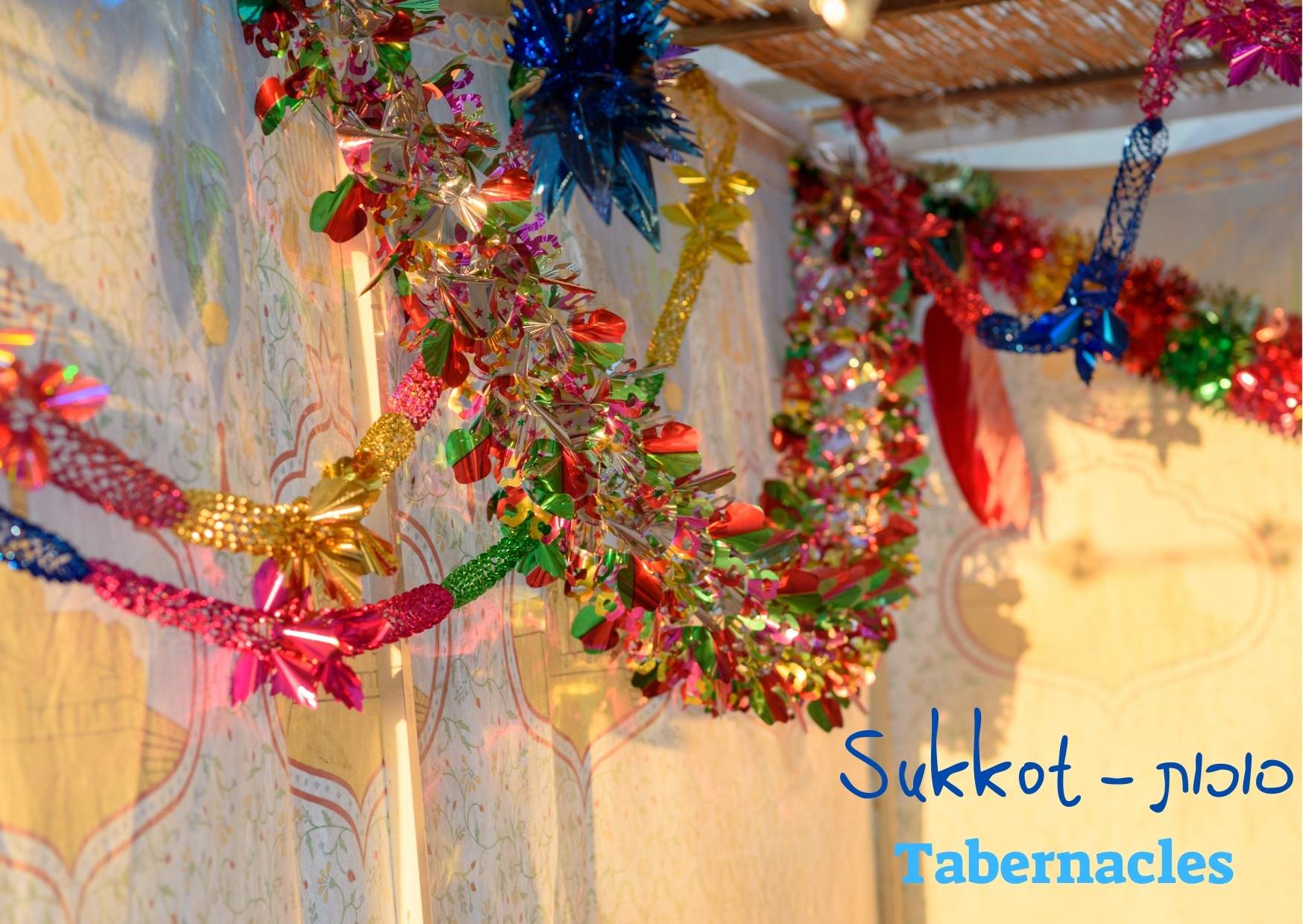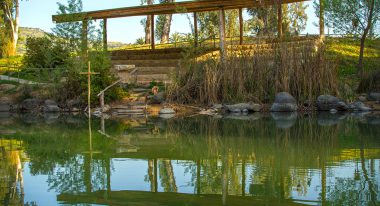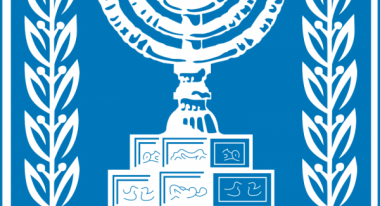
Sukkot – The Feast of Tabernacles
The Jewish Feast of Tabernacles, Sukkot begins on the 15th day of the year (15 Tishrei) and lasts for 7 days. This is the time when farmers, completing the harvest, can relax before the first rains.
The word “Sukkah”, which gave the name to this festival, is translated as a”tent” or “tabernacle”.
A number of explanations are given to the commandment to all generations to dwell in the Sukkah. One of them is that by setting a hut near the house, Jewish people join those who wandered for forty years in the wilderness and finally came to the Land of Israel. According to another interpretation, the meaning of the commandment is to remember poverty, even being rich.
One of the special Sukkot Mitzvot (commandments) is the mitzvah of the waving of the “Four Kinds” – the lulav,etrog, myrtle and willow.
Etrog – the fruit of a citron tree
Lulav – a ripe, geen, closed frond from a date palm tree.
Hadass – boughs with leaves from the myrtle tree.
Aravah – branches with leaves from the willow tree.
This is a very significant and symbolic commandment of unity and harmony. When the blessings are recited over the four kinds, it is customary to wave them to all the four winds and also upward and downward, signifying that G-d is everywhere.
In another interpretation each plant is a certain part of the human body. Etrog is a heart, slim and straight palm leaf is the spine, myrtle, with its oval leaves means eyes and willow is the mouth. Taken together, they constitute a person faithfully devoted to his Creator.
On the eve of Sukkot, special markets are held where you can buy an etrog, lulav, palm fronds for the roof, tools for building and decorating the Sukkah.
Across the country, you can see the tents – in the courtyard, in front gardens, balconies and verandas, car parks. Even on the military bases they build Sukkah. Today, there are few who really live in a tent all seven days of the feast. Usually a family only has a dinner in the Sukkah, but some may stay there overnight. This holiday is very special for children; they see it as an interesting adventure and look forward to spend time inside of Sukkah. In Israel Sukkot (as well as other pilgrimage festivals – Passover and Shavuot) is celebrated for one day. After the first day of the holiday come the so-called semi-holidays: pupils and students are not learning, workers take vacations or working half-days.






